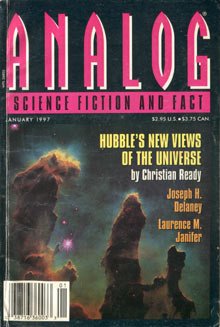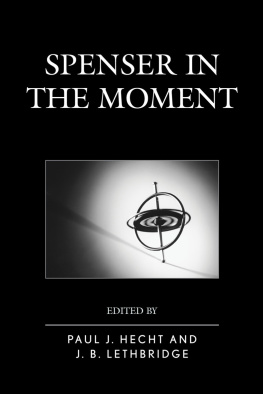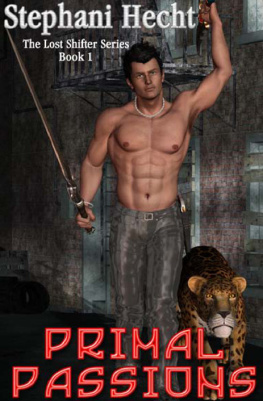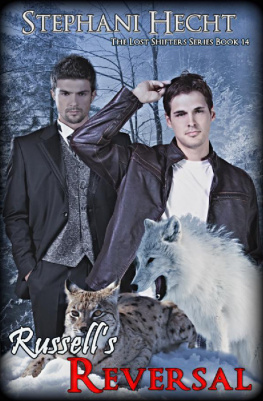BEN HECHT

Ben Hecht
Fighting Words, Moving Pictures

ADINA HOFFMAN

Frontispiece: Hecht at work, Nyack.
Copyright 2019 by Adina Hoffman.
All rights reserved.
This book may not be reproduced, in whole or in part, including illustrations, in
any form (beyond that copying permitted by Sections 107 and 108 of the U.S.
Copyright Law and except by reviewers for the public press), without written
permission from the publishers.
Yale University Press books may be purchased in quantity for educational,
business, or promotional use. For information, please e-mail
(U.S. office) or (U.K. office).
Set in Janson Oldstyle type by Integrated Publishing Solutions,
Grand Rapids, Michigan.
Printed in the United States of America.
Library of Congress Control Number: 2018941583
ISBN 978-0-300-18042-8 (hardcover : alk. paper)
A catalogue record for this book is available from the British Library.
This paper meets the requirements of ANSI/NISO Z39.48-1992
(Permanence of Paper).
10987654321
ALSO BY ADINA HOFFMAN
Till We Have Built Jerusalem:
Architects of a New City
Sacred Trash:
The Lost and Found World of the Cairo Geniza
(with Peter Cole)
My Happiness Bears No Relation to Happiness:
A Poets Life in the Palestinian Century
House of Windows:
Portraits from a Jerusalem Neighborhood
For Phillip Lopate
If I could choose of everything I knowI would choose you and Delancey street and myselfbut not quite as I am now a different cleverness, an intensity with a bit of Yiddish mooniness in it thirteen kids would be too many I draw the line at four And you railing and laughing at me all day, all night As if we were living long long ago I would prefer that to everything else but when we go back, alas, when someday we walk the ghetto together it will be as misfitsghetto misfits because we are too many things now to be any one thing perfectly.
Ben Hecht, from a letter to Rose Caylor, c. 1920
CONTENTS
BEN HECHT

Prologue: The Man
BEN HECHT WAS a genius, Jean-Luc Godard declared in 1968. He invented 80 percent of what is used in Hollywood movies today. He wrote storiesand he made history, proclaimed Menachem Begin four years earlier, at Hechts standing-room-only Manhattan funeral. When Hecht was still alive, and invariably kicking, Mike Wallace announced on national television that he considered him among the most disturbing and colorful characters of his time. And as early as 1918, then-London-dwelling Ezra Pound reportedly explained to a friend why he had no desire to return to the American fold. There is only one intelligent man in the whole United States to talk toso the poet is said to have summed up his affection for his homelandBen Hecht.
Hecht called himself a child of the century, and he was, exuberantly, that. The bad-boy embodiment of much that defined his era, he seemed to know everyone, to be everywhere. Cigar-chomping, wisecracking, Hecht relished the role of brash anti-Zeligbursting to the front of each new frame and stirring up the action as he flooded the field with his own bold tints.
He was most famous for his scripts. The movies Hecht wrote or cowrote remain among the most delightful ever made, from the silent Underworldfor which he won the first-ever Academy Award for best story in 1929to the vertiginously verbal Scarface, Nothing Sacred, Gunga Din, Notorious, and Twentieth Century, which, between rounds of Parcheesi and backgammon, he contrived for stage then screen with Charles MacArthur. Another, still more celebrated Broadway comedy by the two former Chicago reporters, The Front Page, would become one of the talkiest of the early talkies and later serve as the basis for that giddy marvel of cynical, he-said-she-said newsroom romance, His Girl Friday.
Hecht also tinkered in crucial ways with a host of other bona fide classics, including Gone with the Wind, Foreign Correspondent, Gilda, and Roman Holiday. Counts vary widely: its estimated that he may have had a hand in as many as 140 films. Pauline Kael credited Hecht with approximately half the entertaining movies to come out of old-time Hollywood and pronounced him the greatest American screenwriter. Critic Richard Corliss agreed, opening his groundbreaking 1974 survey Talking Pictures with the emphatic claim that Ben Hecht was the Hollywood screenwriter. Screwball comedys airborne patter; the brooding tones of the gangster saga; the newspaper farce and its hard-boiled banterthese were among Hechts signature modes, and whether or not he fathered these forms, he certainly played a major role in their upbringing.
But scriptwriting was just one of Hechts occupationsto say nothing of his preoccupations. There were always a surprising number of mes in operation, he wrote, looking back across his long, slaphappy career, or careers, in journalism, literature, theater, film, and politics. Mercurial as he could be, though, a remarkably unbroken line ran through everything Ben Hecht did. Pugnaciousness and wit figured centrally, as did perversity, a serious sense of play, linguistic dexterity, impatience with decorum and authority. He was also, without fail, prolific. And he did an excellent job of cultivating various legends about himselfso that even now his exploits are most often recounted by means of a hodgepodge of the same salty but well-worn (and not entirely credible) anecdotes, many of his own devising. And while any number of freestanding books might be written about Hechts Hollywood or Ben Hecht in the Newsroom or The Novels of Ben Hecht, all these Hechts were, willy-nilly, one and the sameor variations on a rousing themeso that attempts to pull apart those strands do little to help us fathom the braid of a man he actually was.
Ben Hecht the Jew was also inseparable from these others. Hecht made a point of grandly asserting that he became a Jew in 1939, when, at age forty-six, he began to look on the world with Jewish eyes. This account of his own evolution is more than a little absurd, since he had always been Jewishnot only Jewish, to be sure (Hechts Americanness was arguably his true religion), yet bound from birth to that adjective. And here the question of what makes a Jewish life seems especially fraught, since he insisted on defining his Jewishness in the narrowest terms, in reaction to Hitler and World War II, as if Germanys invasion of Poland had somehow altered his DNA.
From that date on, Hecht remained, of course, Hecht, though the events of 193945 did profoundly change the way he saw himself and how he acted during and after that time. The lessons he drew from this dark period were extreme in a literal sense. They turned him into a Jewish radical, one of the most flamboyant and bellicose boosters of pre-1948 Palestines militant ultranationalist underground, the Irgun. During these bloody years, he trumpeted his admiration for the terrorists of Palestine my brave friends, as he called them, in furious response to a world that had, he felt, sat by with criminal passivity as the Nazis slaughtered millions of Jews.
Next page














